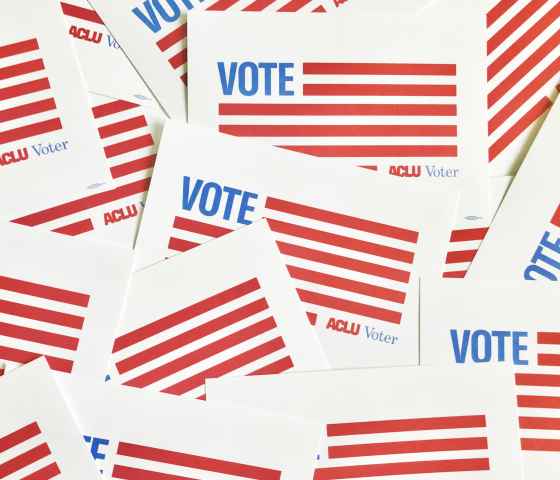The use of facial recognition technologies by law enforcement has been criticized because those systems have been shown to be susceptible to discrimination and bias.
What steps would your administration take to limit and regulate the use of facial recognition technologies by law enforcement and private businesses? How would your administration generally support or oppose the use of facial recognition technology in Chicago?
DOROTHY BROWN: |
 |
|
I would require law enforcement and private companies doing to establish and promulgate their policies on facial recognition technology. For City agencies, especially the Chicago Police Department, I would require an independent review to be conduct conducted of the algorithms underlying facial recognition technology and the proposed uses. If the audit reveals disparate outcomes based on racial or ethnic characteristics, then I will eliminate the technology. Technology, predictive analytic programs, and social media data mining help to take the guess work and subjectivity out of policing. Over the last few years, CPD has invested in body cameras, gunshot detection systems and mobile phones for officers to help solve crimes and ensure constitutional rights are protected. As a result, crime has gone down in areas where technology has been used skillfully and effectively. I believe that CPD should continue to invest in these and other state-of-the art technology to fight crime and ensure public safety. As Mayor, I will work with CPD to make sure the technology is up-to-date, effective and non-discriminatory.
|
GERY CHICO: |
 |
|
I do not think it is wise to preemptively limit potentially useful technology, but agree that any application should come with heavy oversight that includes a civilian board. |
BILL DALEY:
DID NOT RESPOND.
AMARA ENYIA: |
 |
|
It is vital that we determine the extent to which facial recognition technology may be helpful to law enforcement. This aspiration must also be balanced with addressing the risks related to technological mistakes and abuse. Facial recognition technological algorithms struggle to distinguish faces of people with dark skin, and the industry is troubled by the implications of its use by government agencies. More transparency and conversation is required about the use of these technologies and the extent they may unfairly target communities of color. |
BOB FIORETTI:
DID NOT RESPOND.
LA SHAWN FORD: |
 |
| My response is the same as Question 12 above. We have seen privacy rights diminish across this country. A true sanctuary city requires that we not only protect residents from entities outside our city, but we also need to protect our residents from our own city government, its employees, and others who are not respectful to the rights of others. |
JERRY JOYCE:
DID NOT RESPOND.
JOHN KOZLAR: |
 |
|
As long as there is not an unethical invasion of one’s privacy and dignity, we must use the most technological advancements to keep our city and communities safe. These technologies must not discriminate, and we will have systems in place to make sure all readings are accurate. |
LORI LIGHTFOOT: |
 |
|
I am opposed to using facial recognition technology without a legitimate law enforcement purpose. In other words, I oppose using the technology simply because we can or because it is available.
As mayor, I will confirm whether the city’s camera network uses facial recognition technology. If it does, then I will convene a panel to examine what technology is used, how and why it is used, how information is protected, and the circumstances under which such technology should be used in the future, among other things. During this process I will place a moratorium on the use of facial recognition technology or its expansion absent an emergency situation arising from a legitimate law enforcement need.
|
GARRY McCARTHY: |
 |
|
I would defer to federal law for the regulation of the use of facial recognition technologies. I would generally support its use, especially in criminal investigations. |
SUSANA MENDOZA: |
 |
|
In 2008, as a member of the Illinois General Assembly, I voted in favor of the groundbreaking Biometric Information Privacy Act. As mayor, I would continue to support efforts that protect citizens’ biometric data. In the limited cases where law enforcement may use facial recognition technology for public safety, I would support strong checks to ensure that there is no violation of civil liberties in the process. I would also be aware of continued inaccuracies in facial recognition systems and take steps to make sure that the police findings from facial recognition technology are corroborated by other evidence in criminal investigations. |
TONI PRECKWINKLE: |
 |
| While the Chicago Police Department has used facial recognition technology for years, Chicagoans have lost their faith in law enforcement’s ability to be transparent while pursuing public safety. Under my administration, I will strike to achieve an appropriate balance of public safety with respect to protecting constitutional rights. This means transparency, as citizens should know how the technology is being used and in what situations it could be used against them. Businesses should be required to disclose if and how they use facial recognition technology, to tell the public what information they collect and share, and how long the information is stored. Additionally, facial recognition technology used by law enforcement and businesses should be evaluated to ensure that it is in the interest of public safety and does not violate individuals’ privacy. |
NEAL SALES-GRIFFIN:
DID NOT RESPOND.
PAUL VALLAS: |
 |
|
The standing committee should review the use of the equipment and assess if the technology being used is inadvertently discriminatory in practice. Technology will evolve and having a standing committee will allow groups to oversee, weigh in and provide input to current and future technology. This is so that our standards and policies can evolve while ensuring the protection of peoples’ civil liberties and human rights. |
WILLIE WILSON:
DID NOT RESPOND.
